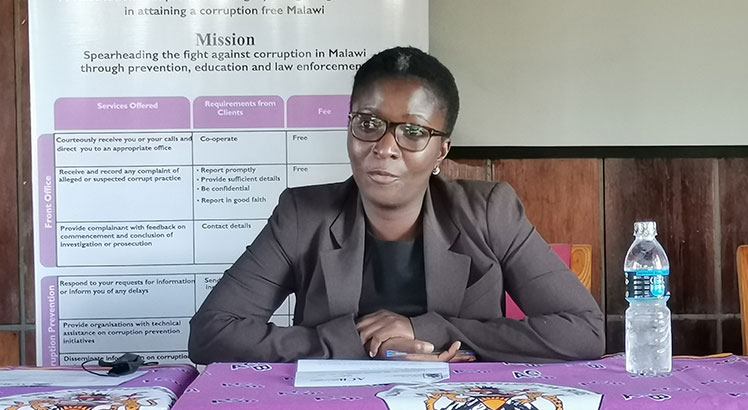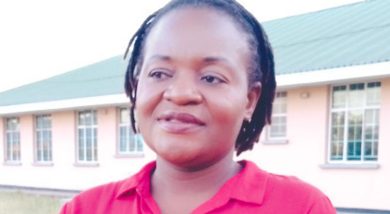Chizuma decries inconsistent political will in bribery fight
Anti–Corruption Bureau (ACB) director general Martha Chizuma says political will has been inconsistent in the fight against corruption during the past 25 years, a situation she claims has derailed the fight against the vice.
Speaking during a public debate yesterday in Lilongwe organised by the bureau as part of 25 years of the bureau’s commemoration, Chizuma said citizens need to improve the quality of politicians they elect “because the fight against corruption largely depends on them”.

The ACB boss also suggests installation of systems and other structures in the country’s institutions that are corruption-resistant to enforce the fight against corruption which is robbing the country of billions of kwacha.
She further observed that elected leaders such as Presidents and other heads of institutions are changed but systems remain the same, hence the prevalence of corruption in the country.
Said Chizuma: “Let us face it; you cannot effectively deal with corruption without consistent political will. Looking back to the last 25 years, we have seen that that kind of political will has been quite inconsistent.
“There have been times when you could have political will, but that space is very narrow and very short such that if you don’t utilise it, it passes very quickly and gets closed.”
She also pointed out a need to personalise the effects of corruption, arguing that the moral campus of some citizens seems to be upside down and they end up applauding those stealing public funds.
Said Chizuma: “But people who are ethical and trying their best in public institutions are the ones looking stupid. So, we really need to re-shift our moral campus and reward good and punish evil. ”
She also observed that there is a need for good people to unite to counter the strength of the corrupt, saying corrupt people are well-resourced and coordinated.
In his contribution, Malawi Law Society (MLS) president Patrick Mpaka stressed the need to grow capacity of professional bodies to enforce ethics and standards, saying the people involved in corruption are the same well-trained lawyers, accountants, engineers and others.
According to Mpaka, professionals are entrusted by the rest of the population to guide the nation because of the knowledge, hence the need to strengthen such bodies to religiously adhere to their standards.
Taking his turn, Institute for Policy Research (Ipor) director Boniface Dulani said the country needs to train young people in issues of integrity make a difference in future.
ACB registered and processed 36 878 cases during the 25 years of its existence and 26 210 of the cases, representing 71 percent, were either closed or referred to other institutions while 10 615 of the cases, representing 29 percent, were recommended for investigations. During the period, the bureau received K35.8 billion from government and almost K3.5 billion from development partners.





